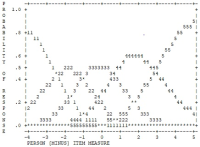PURPOSE This study aimed to examine the mediating effect of psychological needs in the relationship between multiple coaching styles and teamwork among college football players. METHODS This cross-sectional study involved 526 elite football players. Descriptive statistics, reliability analysis, confirmatory factor analysis, correlation analysis, path analysis, and macroprocess were performed using statistical software to test the mediation effects of the data collected. RESULTS The findings suggested that autonomy-supportive and structure coaching styles positively correlated with and impacted psychological needs satisfaction and teamwork. Conversely, control and chaos coaching styles negatively correlated with and impacted psychological needs satisfaction and teamwork. In addition, autonomysupportive and structure coaching styles negatively correlated with and impacted psychological need frustration, while control and chaos styles positively correlated with and impacted psychological needs frustration. Furthermore, psychological needs satisfaction and frustration were found to partially mediate the relationships between autonomy support and teamwork, structure and teamwork, control styles and teamwork, and chaos styles and teamwork. CONCLUSIONS Autonomysupportive and structure coaching styles positively influenced teamwork by satisfying psychological needs. In contrast, control and chaos coaching styles negatively impacted teamwork by contributing to psychological needs frustration.

Purpose The purpose of this study was to determine item goodness-of-fit and the optimal categorization of an instrument measuring Korean elite young soccer player’s self-esteem using a two-facets Rasch model (item parameters and person parameters). Methods 10-item Rosenberg Self-Esteem Scale (RSES) with five response categories was administered to 366 elite young soccer players from the Korea football association. The Rasch analysis was conducted by WINSTEPS 3.65. Results First, the model fit the data well. Second, 5-category rating scale did function well. Third, a item-person map illustrated the distribution of RSES items and person’s level of self-esteem. Fourth, the separation reliability of the items and person was shown to be an acceptable degree of confidence, respectively. Lastly, there was statistically significant difference in self-esteem between starting players and bench players, which supported the known-difference evidence of validity. Conclusion These findings provided additional support for the suitability of the RSES in assessing self-esteem of Korean elite young soccer players.



PURPOSE This study both validated the Characteristics of Resilience in Sports Teams Inventory (CREST) scale for use in Korean sports and analyzed the impact of team resilience on teamwork and performance. METHODS The study surveyed 462 elite football players by using the CREST scale to measure team resilience in Korean sports. Data were analyzed using descriptive statistics, exploratory factor analysis (EFA), reliability analysis, correlation analysis, multiple regression analysis, and confirmatory factor analysis (CFA). RESULTS First, results confirmed that the CREST scale’s two main factors—resilient characteristics and vulnerabilities under pressure—can be meaningfully applied in the Korean context. Second, resilient characteristics showed positive correlation with life skills, whereas vulnerabilities under pressure showed negative correlation. Third, resilient characteristics positively predicted life skills, whereas vulnerabilities under pressure negatively affected life skills. CONCLUSIONS The CREST scale was found reliable and valid in the Korean sports context, demonstrating that team resilience significantly impacts life skills. Thus, the study contributes to evaluation of resilience in Korean sports teams and provides strategicinsights to improve team performance.